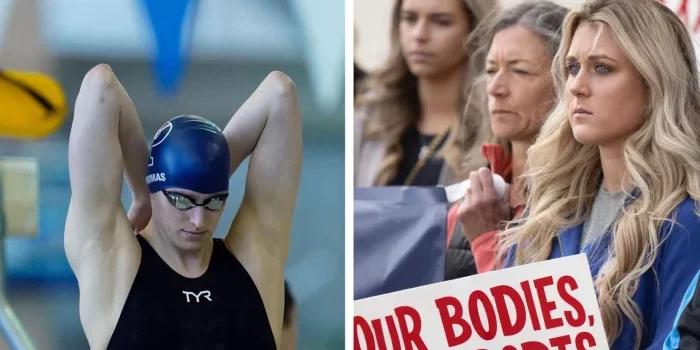(Casey Harper, The Center Square) – Four high school female track athletes in Connecticut have stood against the influx of transgender athletes seeking to compete against girls in school sports, likely setting up a defining legal battle of 2024.
The U.S. Court of Appeals rescued the legal challenge, Soule v. Connecticut Association of Schools, in December after a lower court dismissed the case. Now, the case will be heard in federal district court and will be a defining moment in the ongoing debate, which has been ramped up by a string of injuries to female athletes at the hands of transgender athletes in recent months.
Those girls say allowing biological boys to compete is unfair and violates Title IX, the federal law that established and protected female school sports by prohibiting discrimination on the basis of sex.
The girls in question are Selina Soule, Alanna Smith, Chelsea Mitchell, and Ashley Nicoletti, who say they personally lost to male athletes identifying as female.
They point out that from 2017 to 2019, two transgender athletes won 15 women’s track championship titles, titles that were previously held by nine female athletes.
Soule missed qualifying for a state championship by one spot after the two transgender athletes finished ahead of her. Nicoletti also missed the opportunity to compete at a state championship open because the transgender athletes finished ahead of her.
Mitchell, who was once ranked the fastest girl in Connecticut, lost four state championships to the transgender athletes. Smith finished behind a transgender athlete at a regional championship, pushing her back to 3rd place instead of 2nd place.
“Selina, Chelsea, Alanna, and Ashley – like all female athletes – deserve access to fair competition,” ADF Senior Counsel Roger Brook said in a statement. “The [Connecticut Interscholastic Athletic Conference] policy degraded each of their accomplishments and scarred their athletic records, irreparably harming each female athlete’s interest in accurate recognition of her athletic achievements.”
Notably, the court said the girls who filed the lawsuit had suffered injury and thus were able to file the legal challenge.
“Plaintiffs all personally competed in high school track in Connecticut, and they all identified instances in which they raced against and finished behind one or both Intervenors,” the court said, adding that, “With these assumptions in mind, we conclude that Plaintiffs adequately pled a concrete, particularized, and actual injury in fact: the alleged denial of equal athletic opportunity and concomitant loss of publicly recognized titles and placements during track and field competitions in which they participated against and finished behind” the transgender athletes.”
The case has attracted national attention and will likely set significant precedent in the ongoing battle over biological males attempting to enter female sports in schools.
Proponents of the transgender athletes’ participation say it is unfair to prevent them from competing.
ADF boasted that a range of athletes, coaches, advocacy groups and 23 states have backed the female athletes filing 12 friend-of-the-court briefs with the 2nd Circuit.
“The en banc 2nd Circuit was right to allow these brave women to make their case under Title IX and set the record straight,” Brook said in a statement. “This is imperative not only for the women who have been deprived of medals, potential scholarships, and other athletic opportunities, but for all female athletes across the country.”

